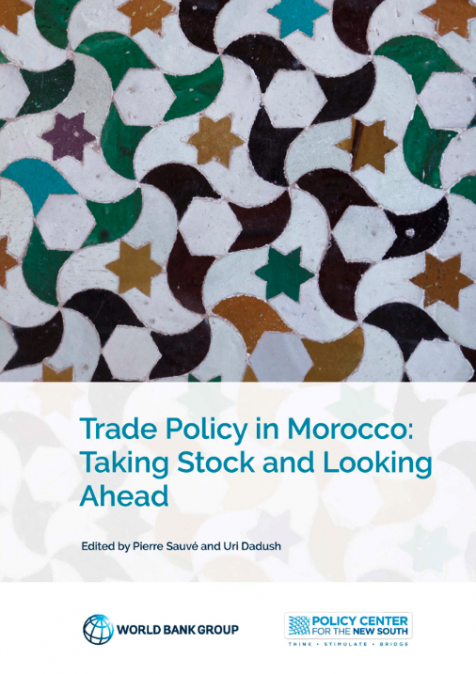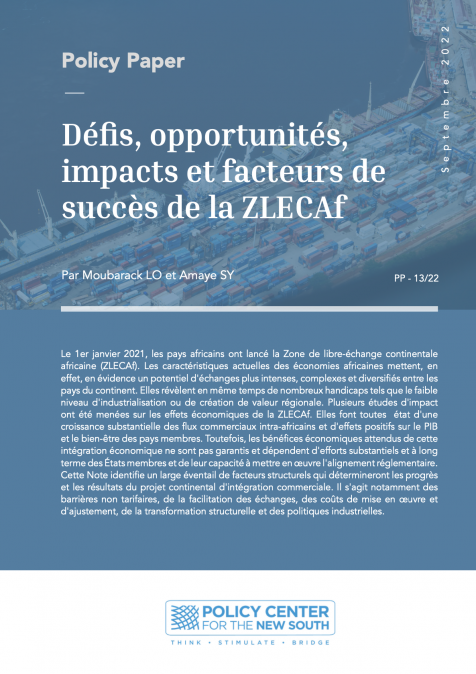Publications /
Opinion
This blog was originaly published on orfonline.org.
The maritime cities of the 21st century are not merely legacies of the industrial age. Rather, they are becoming platforms of global connectivity and engines of economic transformation. As global trade shifts toward digital platforms and multimodal logistics, the traditional harbour is transforming into a 'Blue City' - a modern coastal centre where trade finance, service industries, and skilled workers are considered as key economic growth drivers.
This transformation is particularly critical for the Global South, where coastal urban centres have the potential to become economic accelerators for entire regions. Yet, despite their strategic geographies, many of these cities are trapped by structural inefficiencies in trade finance and insurance regimes, which significantly increases their cost of capital and hinders their integration into high-value trade services.
Maritime Cities as Services Hubs
With more than 80 percent of global trade moving by sea, ports are no longer just maritime infrastructure gateways, they are highly sensitive nodes that shape the global trade landscape. The modern maritime city leverages blockchain-based trade platforms, port community systems, and data-driven logistics to facilitate smoother, faster, and more transparent trade.
In this new ecosystem, value creation shifts from simply moving goods to providing services like digital customs brokerage, logistics analytics, insurance underwriting, and financial intermediation. These are precisely the sectors where the Global South must build competitiveness, but doing so requires a serious rethinking of the cost of capital and access to inclusive financial services.
Structural Bias in Trade Finance and Insurance
According to the African Development Bank (AfDB), an estimated $1.7 trillion global trade finance gap disproportionately affects small and medium enterprises (SMEs) in developing economies. High collateral requirements, limited credit access, and underdeveloped regulatory frameworks contribute to risk premiums that artificially inflate borrowing costs.
Similarly, maritime insurance markets, dominated by a few global underwriters, use risk models based on outdated or Western-centric assumptions, penalizing African, Asian, and Latin American ports with higher premiums. This structural bias raises the cost of doing business for Global South maritime cities, reducing their competitiveness and deterring foreign direct investment.
To overcome these constraints, multilateral development banks (MDBs) and international institutions such as UNCTAD, the World Bank, and the OECD must play a leading role in reshaping the financial landscape for maritime cities in the Global South. This involves de-risking port infrastructure investments through blended finance models that attract both public and private capital. At the same time, regional credit guarantee schemes should be strengthened to support smaller actors who are often excluded from mainstream trade finance. Establishing sovereign-backed trade finance facilities can further enhance liquidity and trust in emerging markets. Equally important is the need to standardise insurance regulations and actuarial assessments using locally relevant data, ensuring that risk is priced fairly and no longer distorted by outdated or biased models.
Unlocking Human Capital for the Blue Economy
Finance and services require more than physical capital. They require human skills. Maritime services in digital logistics, fintech, environmental compliance, and port analytics will be among the fastest-growing employment segments in the coming decade. Yet the skills gap remains significant.
Maritime cities must invest in vocational training centers, digital upskilling, and public-private partnerships with universities and logistics firms to prepare a new generation of service professionals. Equitable access to education and digital infrastructure is particularly vital for youth and women, who are often excluded from these sectors.
Case Study: Morocco and the Tangier Med Model
Morocco exemplifies a successful pivot toward the Blue Cities paradigm. Tangier Med, Africa’s largest port and world’s 19th port in terms of container capacity with 9 million TU in 2024, is not only a logistics powerhouse, but also a platform for industrial integration, being directly connected to a Special Economic Zone (SEZ) housing over 1,400 companies in logistics, automotive, aeronautics, and finance. Through public-private partnerships, strategic infrastructure investments, and a focus on vocational training, Morocco has significantly reduced its trade financing constraints and positioned itself as a gateway between Europe and Africa.
These advancements enabled the port to process cargo at record speeds, making it a preferred transshipment hub for global shipping giants like Maersk and MSC. In this regard, the Danish shipping giant Maersk announced beginning of 2025 that it will redirect its MECL service route – which connects India, Pakistan, and the Middle East with the USA’s east coast – from Spain’s port of Algeciras to Morocco’s Tanger Med Port, a major shift in the Mediterranean maritime logistics that will significantly improve transit times, by reducing shipping times by five days according to Maersk.
The Tangier Med model shows that with the right policies, even developing countries can overcome financial and institutional biases to become central nodes in the global maritime network.
The Way Forward: Policy and Partnerships
The success of the Tangier Med model underscores the importance of strategic coordination across finance, infrastructure, and human capital—offering valuable lessons for how other emerging economies might chart their own path toward resilient and inclusive Blue Cities.
Fully unlocking the potential of Blue Cities, requires the adoption of an integrated approach that addresses key structural and institutional barriers. First, reforming the trade finance architecture is essential—this includes encouraging open data sharing to improve credit scoring, establishing regional credit registries, and simplifying trade documentation to make financial services more accessible and efficient. At the same time, innovation in maritime insurance is crucial. Promoting local underwriting solutions that leverage Artificial Intelligence (AI) and satellite data can help price risk more accurately and fairly, especially for ports in the Global South.
Equally important is the need to align port development with broader urban planning through supportive urban-port governance models, ensuring that the benefits of maritime growth extend to surrounding communities and reduce regional disparities. Finally, human capital strategies must prioritise the integration of maritime service skills into national employment and education systems, preparing a workforce capable of thriving in digital and service-oriented port economies. To support these transitions, multilateral institutions such as the International Maritime Organization (IMO), the World Trade Organization (WTO), and the African Continental Free Trade Area (AfCFTA) secretariat must provide coherent policy frameworks, technical assistance, and financial backing.











